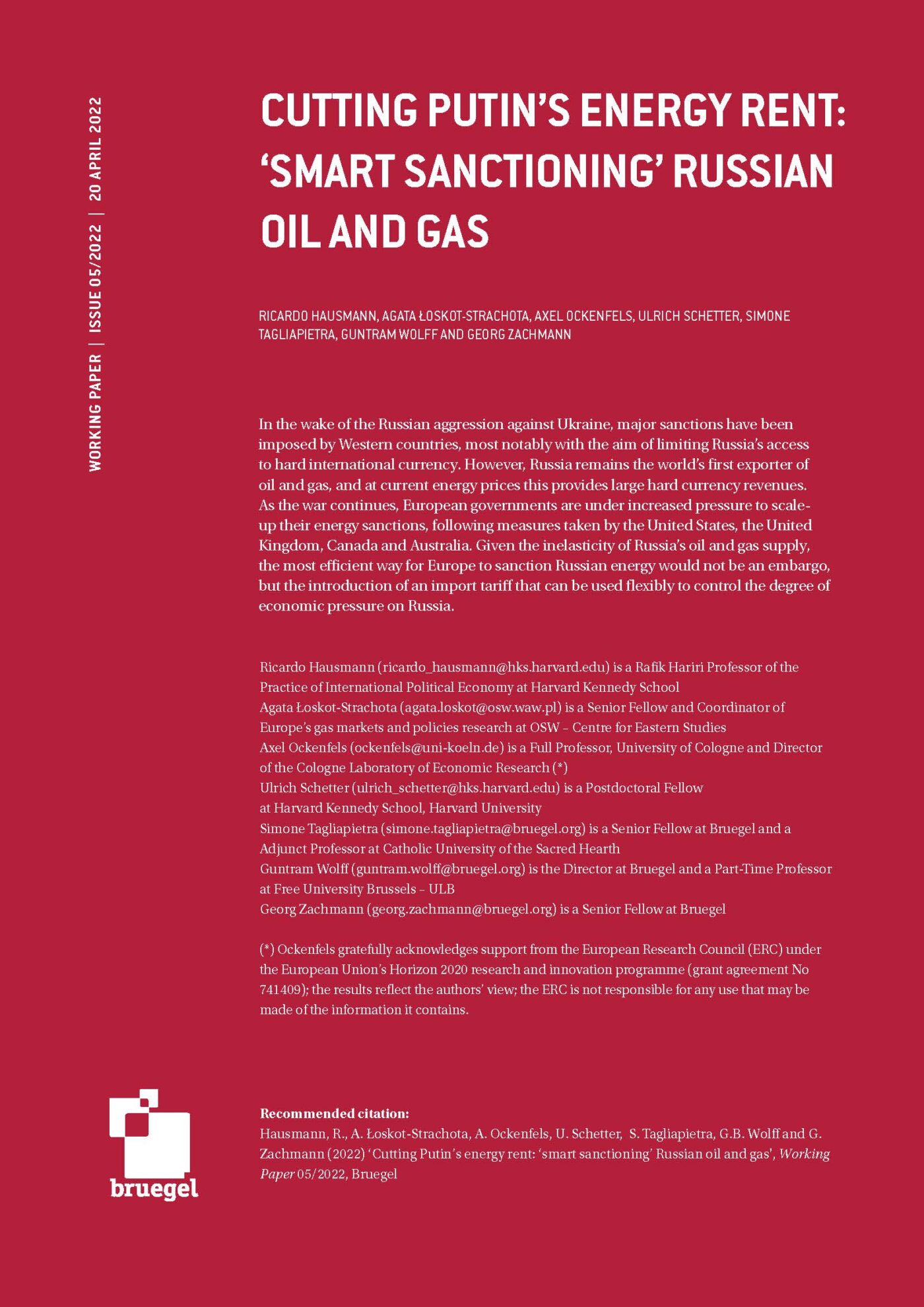Opinion
Ukraine needs external financial assistance now
Planning Ukraine’s reconstruction tomorrow is important but meeting its financial needs today is more pressing and requires urgent action by the IMF and the international financial community.
This opinion piece was originally published in Corriere della Sera, El Pais and Le Monde, Frankfurter Allgemeine Zeitung, Postimees, Rzeczpospolita, The New Voice of Ukraine in Ukrainian and English.
Assistance provided to Ukraine, mainly by Europe and the United States, has been dominated by weapon deliveries and military support. Since late April, there has also been a growing discussion about the financial effort needed to rebuild Ukraine after the war. Calls are being made for a new Marshall Plan, largely financed by the international community but also possibly by seizing Russia’s foreign assets. While this will be critical for Ukraine’s future when the conflict ends, it does not respond to Ukraine’s immediate need for financial assistance, to which the international community has only provided partial answers.
Ukraine’s short-term financial assistance needs have exploded. In March, the International Monetary Fund estimated that Ukraine’s gross external financing need would amount to only $4.8 billion in 2022. This has now been overtaken by events. Even though capital outflows have been limited, largely because of proactive capital-flow management by the National Bank of Ukraine (NBU), the fiscal deficit is much larger than planned. The monthly deficit in April was around $2.8 billion while estimates for May amount to $4 billion to $5 billion per month. NBU reserves amount to about $30 billion. With the current external financing gap, foreign exchange reserves could be exhausted within six months.
G7 countries have said they will help stabilise the Ukrainian economic and financial backdrop. The European Commission is working on increasing its macro-financial assistance by up to €9 billion, but mobilising these new loans requires an IMF programme. The European Bank for Reconstruction and Development and the International Finance Corporation could together add some $3.4 billion to support Ukraine’s private sector, but this would require a macroeconomic framework. And the US has passed a $40 billion package of assistance to Ukraine that includes $8.8 billion for a dedicated fund to help Ukraine’s government continue to function. It also commits $4.4 billion in grants for international disaster assistance, part of an effort to stem the disruption to global food supplies as a result of the war. The sum of these resources is substantial but the overarching organising framework is missing.
More structured financial assistance needs to be assembled over the coming weeks. A new IMF Macro-Financial Assistance programme supplemented by bilateral and multilateral assistance needs to be assembled quickly. It doesn’t require macro-conditionality but would benefit greatly from the credibility of an IMF staff monitored programme to demonstrate the financial support of the international community, improve international coordination and facilitate two important additional sources of external financing:
First, a programme providing considerable official external assistance would either have to consist of actual grants or relieve the burden of current external debt. Of the nearly $100 billion of Ukraine’s public debt, about half is foreign currency denominated. With the current level of economic distress, Ukraine has lost access to market financing completely. International issuance could only come with international guarantees, but it would be hard to justify new issuance without at least a stand-still on the repayments due in 2022/2023. A new international financial support programme could therefore provide the necessary coordination framework to arrange an international debt restructuring. Loans with guarantees but without any debt relief could limit any form of private sector investment into Ukraine, thereby further weighing on the economy. Some form of debt restructuring could be secured on more or less concessional terms depending on the extent and length of the official external support.
Second, the European Central Bank, possibly alongside the Federal Reserve, should extend a bilateral swap line to the NBU. This is no substitute for budgetary assistance but would make the NBU’s foreign-exchange and capital-flow management policies more credible and effective. The ECB mentioned the possibility of such a swap line in March but has not followed up. Implementing it now would prove the EU’s unwavering commitment to support the NBU; even if untapped, the swap line would help reduce foreign-exchange strains and limit potential hard currency runs in Ukraine’s financial sector.
All in all, given the large GDP contraction, the shock to the current and financial accounts, and its major fiscal needs, Ukraine needs official financing and it should be an essential part of the international community’s strategy against the Russian aggression. It is better that it comes early within an organised framework to maximise its effect and increase the display of international support beyond weapons supply, rather than in a piecemeal manner through bilateral support. Planning Ukraine’s reconstruction tomorrow is important but meeting its financial needs today is more pressing and requires urgent action by the IMF and the international financial community.
Republishing and referencing
Bruegel considers itself a public good and takes no institutional standpoint.
Due to copyright agreements we ask that you kindly email request to republish opinions that have appeared in print to [email protected].

















